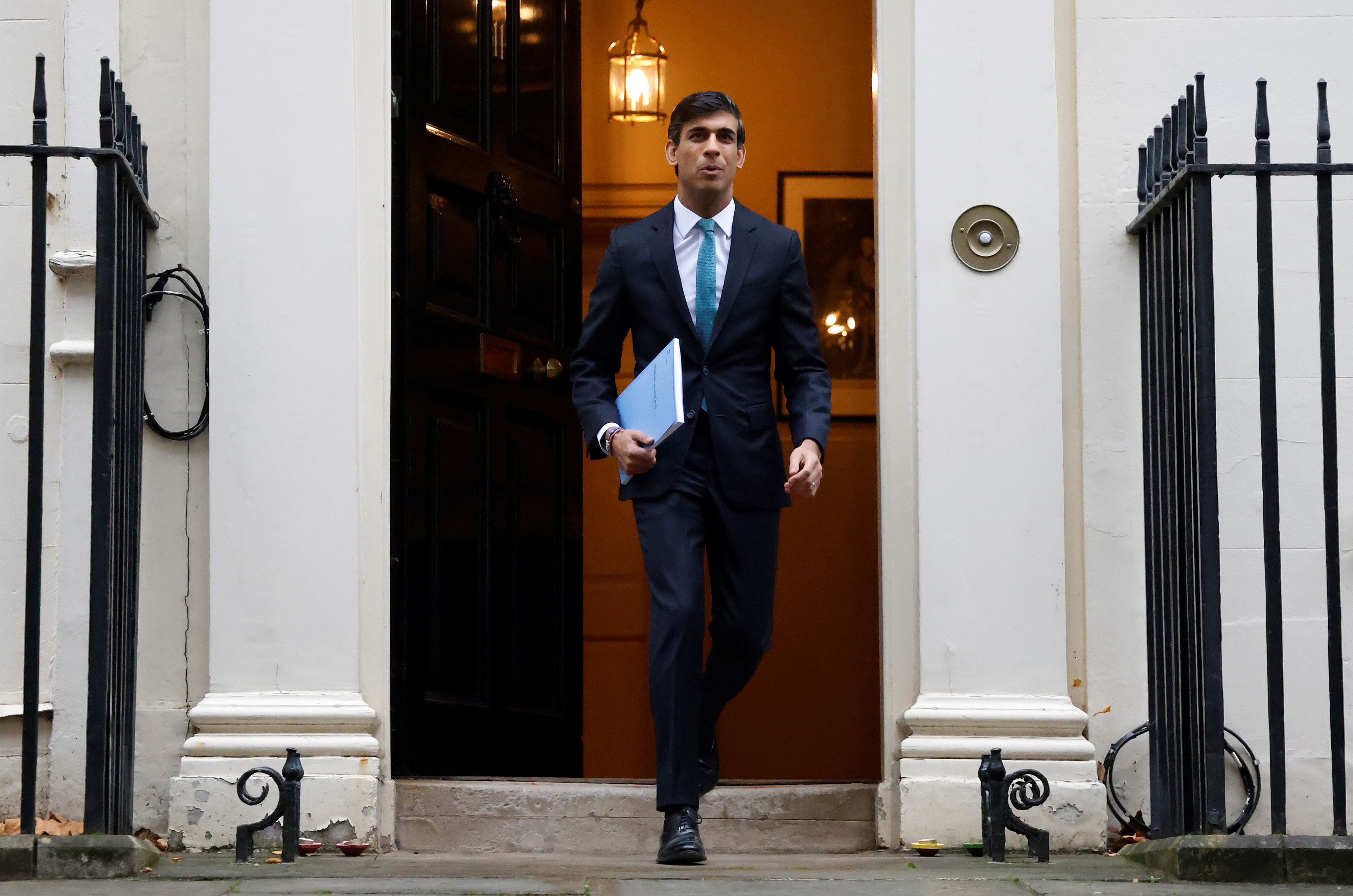Rishi Sunak says borrowing is ‘immoral’ – but he doesn’t mean it
The chancellor wants to avoid putting up taxes and cutting spending for as long as he possibly can, writes John Rentoul


Rishi Sunak has finally got round to putting up some new pictures in the chancellor’s office in the Treasury, and he has chosen portraits of three of his predecessors: Hugh Gaitskell, William Gladstone and Nigel Lawson.
Each is significant. Gaitskell “was at the same school as me”, Sunak told The Spectator in an interview published today. “As a Labour chancellor he was sceptical about European integration, he was pro the nuclear deterrent and he wanted to abolish Clause IV. So what’s not to like?”
Gladstone was “a great free-trader and super fiscally conservative,” said Sunak: “both things that I want to emulate”. And Lawson “intellectually dominated his time as a tax-reforming chancellor”.
The scale of Sunak’s ambition and the skill of his self-promotion is revealed in these choices. In particular Gladstone, and even more specifically the second of Gladstone’s qualities that Sunak mentioned, of watching the pennies to balance the government’s books.
Elsewhere in the interview, Sunak – who today announced the extension of the furlough scheme for one more month until the end of April 2021 – said: “It is clearly not sustainable to borrow at these levels. I don’t think morally, economically or politically it would be right.”
The lurch into morality seems a truism of fiscal conservatism and yet also strikes a jarring note of ethical fundamentalism at a time when the usual rules of government accounting are suspended.
So is Sunak simply mouthing the platitudes of fiscal rectitude, in order to keep the markets and one wing of his party happy, or does he mean it, in which case unpopular tax rises and public spending cuts are on their way?
For a long time, the chancellor can avoid making it clear where he really stands by postponing the hard decisions. It could be that he sincerely believes that government debt should fall as a share of national income (in this fiscal year it is going up from about 80 per cent to about 100 per cent), but not yet.
And “not yet” could be many years; it could be longer than the electoral cycle; it could be longer than Sunak expects to remain in his current redecorated office. But that is such an obvious way out of the choice facing him and the government that he appeared to close it off voluntarily in his interview. He said that “running a structural deficit years into the future, with debt rising, [is] not building up the resilience you need to deal with the future shock that will come along, and someone else will be sitting in my chair”.
He set out briefly the problem with which economists are currently struggling. On the one hand, many of them say, in most un-Gladstone-like terms, that low interest rates mean governments can and should borrow. Although government debt is high, the cost of it is lower than ever, and this is true around the world.
Sunak, on the other hand, said: “Are you or anyone else going to guarantee me that, for the duration of this parliament, rates might not go back to 1 per cent?” Even that small increase would mean a tripling of the cost of new debt. However, that would not be an apocalyptic blow: Sunak said it would mean having to find “£10-20bn a year in a few years’ time” – a lot of money but nothing like the crisis numbers of the past year.
Indeed, such modest calculations suggest that Sunak sees a way back to fiscal normality that would enable him to avoid a new period of “austerity” – something that such a political chancellor would be desperate to do. As his choice of Gaitskell suggests, he is always thinking about what the opposition will do. He said that if the Conservatives “think borrowing is the answer to everything, that debt rising is fine, then there’s not much difference between us and the Labour Party”.
The cynic might say that Sunak’s talk about it being “morally right” to reduce government borrowing is designed to give the Tories something to say at the next election when there is indeed likely to be “not much difference” between the two parties’ spending plans.
Unable to accuse Keir Starmer’s Labour Party of profligacy, the Tories can promise to achieve Gladstonian fiscal rectitude not quite yet, but soon, and definitely before the opposition ever would.
Join our commenting forum
Join thought-provoking conversations, follow other Independent readers and see their replies
Comments



Bookmark popover
Removed from bookmarks